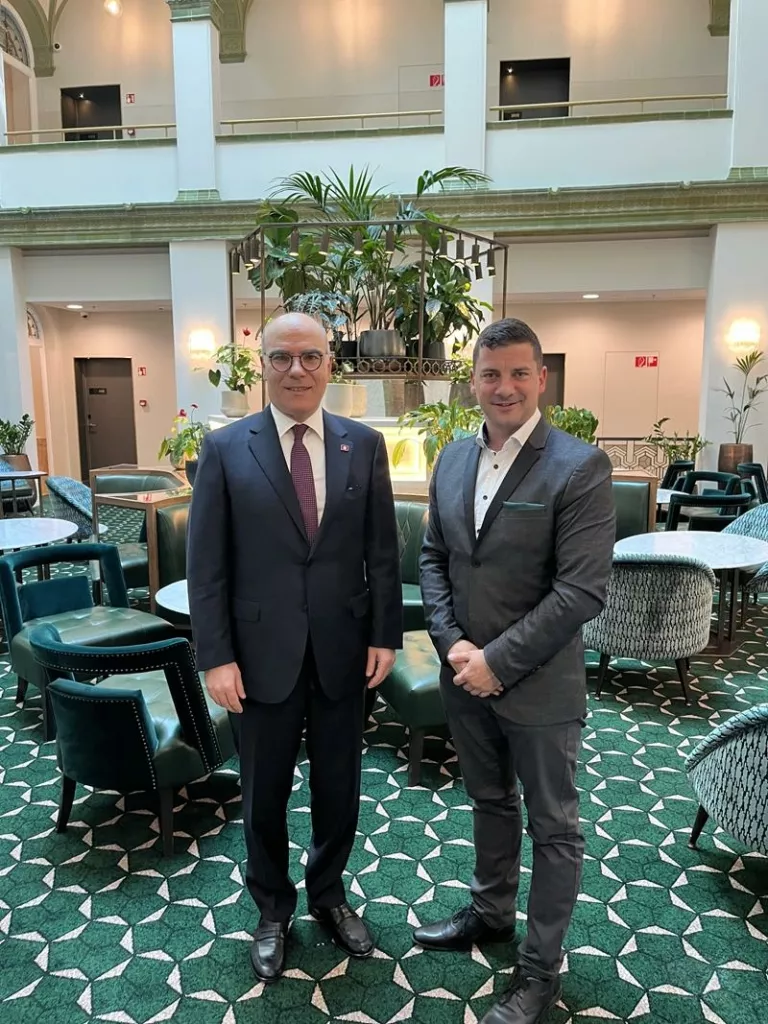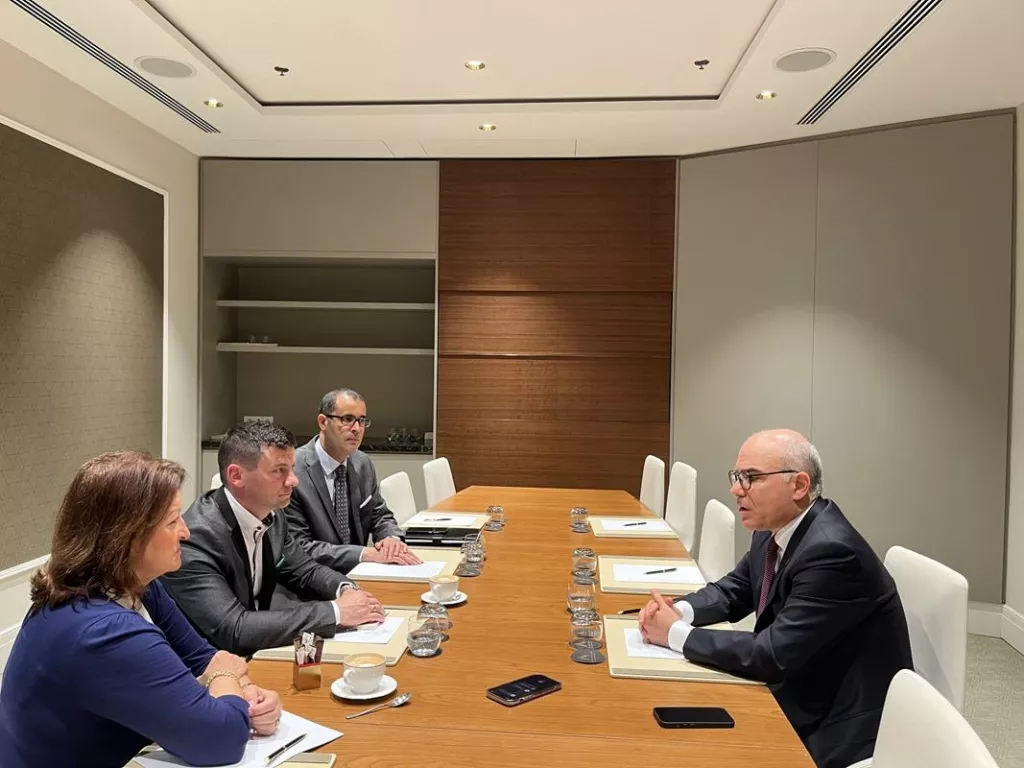Exclusive interview with Tunisia’s Foreign Minister: the key solution to curb migration is not border security strengthening

Change language:
We had the chance to meet up with Tunisian Foreign Minister, Nabil Ammar, during his two-day visit to Budapest. We have discussed Hungarian-Tunisian relations – political, economic and cultural. And we have also touched upon the issue of migration and the possibilities of an upcoming direct Tunis-Budapest flight.
In a meeting room at the Parisi Court, we caught up with Nabil Ammar, who represents Tunisia’s foreign policy. Mr Ammar also has a special interest in migration and Tunisians living abroad. The minister was amicable from the start and repeatedly stressed that his country is safe and peaceful, and all conditions are ideal to welcome Hungarian visitors who come for business or pleasure.
He deemed the intergovernmental relations to be exceptionally good, which is why he met Foreign Minister Péter Szijjártó and László Kövér, Speaker of the Parliament. The minister said that his country’s rapport with the Hungarian government was also great as Budapest understood and supported democratic changes in Tunisia. Democracy is a process whose modalities are determined by the Tunisian electorate, he noted. Instead of interfering and giving unsolicited advice, the Hungarian Cabinet is helping with good intentions, and for this the Tunisian President, Mr Said, is very grateful.
The harmonious relationship between the two nations is also demonstrated by the fact that Tunisia is able to send 200 students a year to Hungary through the Stipendium Hungaricum programme. Students from the North African country can study in the most sought-after fields today, such as engineering, medicine, IT or agricultural engineering.
Europe’s relations with Tunisia
One of the main routes of illegal immigration runs through North Africa, and Tunisia is involved as well. The European Commission has offered EUR 1 billion to the country of 12 million people to reinforce their border security, but Tunisian President Qais Said has repeatedly stated that his country will not be Europe’s border guard. He added that it is not Tunisia’s responsibility to deal with the migration crisis in Europe. Foreign Minister Ammar underlined that they want to cooperate with the European Union in all their efforts, however, they believe that the key solution is not border reinforcement but treating the root causes of migration. In his opinion, the EU is pushing border fortification, although it is clear whether the weight of mass migration can be eased by increasing the number of border guards. “We need to get to the root of the problem, and in this case that means ensuring a viable future for the masses who decides to flee their home countries”, the minister explained. Education, new jobs and a range of development could keep people in their own countries, and that is where the EU would have a big role to play.
Mr Ammar stressed that
the real solution is to create prosperity in the medium and long term, but Brussels is focusing more on the short-term solutions and this should change.
It is often said that Africa is the continent of the future, but it is not enough to exploit its natural resources, the Foreign Minister stressed.
Mr Ammar also added that the meetings between the African Union and the European Union have produced results, but that real and meaningful progress will only be seen if a strong partnership is established and cooperation is mutually beneficial. As he put it, if we only treat the surface, there will never be a permanent solution, only a temporary one. Africa is in need of external aid, but that aid would come back to the ‘investors’ later, with added interest. He reckons that the developing continents show great potential.







